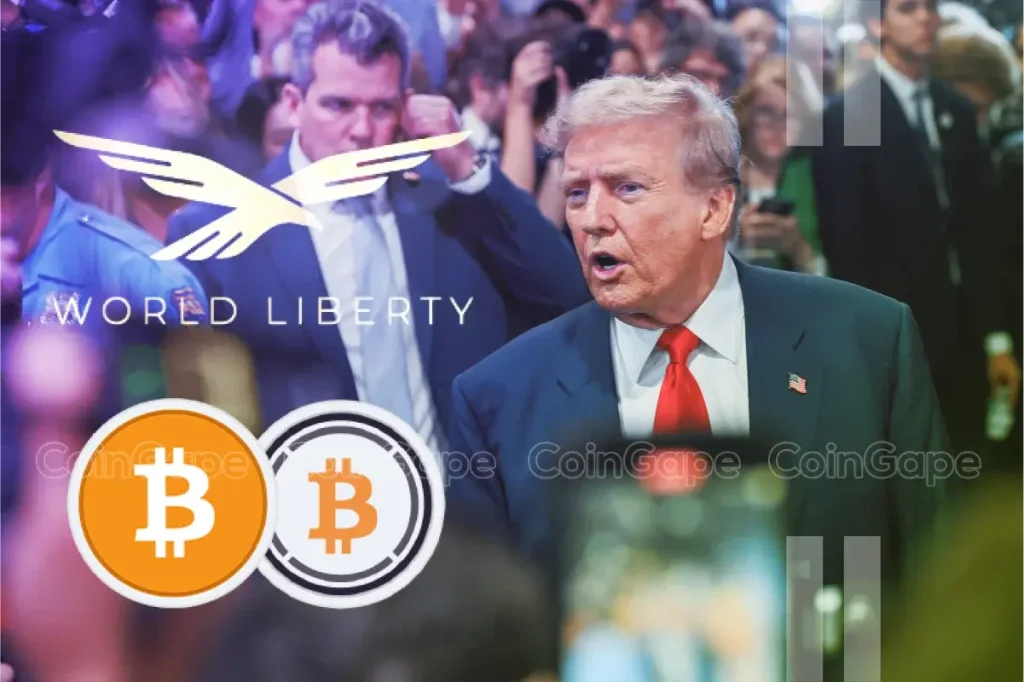World Liberty Financial’s Strategic Shift: Aligning with WBTC After Coinbase Controversy
World Liberty Financial (WLFI), a decentralized finance (DeFi) project associated with Donald Trump, has recently made headlines by restructuring its wrapped Bitcoin holdings. Following Coinbase’s controversial decision to delist Wrapped Bitcoin (WBTC), WLFI exchanged $10.4 million worth of Coinbase-backed cbBTC for 103.15 WBTC. This strategic move not only showcases WLFI’s agile response to market dynamics but also signifies its alignment with industry leaders advocating for better transparency and governance in the cryptocurrency space.
The pivotal decision to transition from cbBTC to WBTC aligns WLFI with Justin Sun, the founder of TRON DAO and a vocal critic of cbBTC. Sun, who has been raising alarms about cbBTC’s governance and its centralized nature, has framed WBTC as a more reliable substitute. By opting for WBTC, WLFI not only enhances its asset stability—given WBTC’s robust $13.6 billion market cap—but also emphasizes the project’s commitment to long-standing infrastructure advantages that WBTC offers over its Coinbase counterpart.
Coinbase’s sudden move to delist WBTC has stirred significant controversy and led to legal disputes among investors and stakeholders. Following the announcement, Justin Sun publicly challenged Coinbase’s Chief Legal Officer, Paul Grewal, questioning the rationale behind the delisting and its implications for equitable token listing standards. Adding to the chaos, Sun’s company, BiT Global, has initiated a lawsuit against Coinbase, alleging anti-competitive behaviors and seeking accountability. These legal battles highlight the complexities and competitive tensions within the cryptocurrency ecosystem, further punctuating the importance of governance transparency.
Amidst this upheaval, WLFI’s transition to WBTC emerges as a sound strategic decision, likely aimed at ensuring the project’s robustness in a fluctuating market. Analysts suggest this alignment with WBTC will buffer WLFI from the impacts of Coinbase’s turbulent developments. Meanwhile, it’s noteworthy that despite controversy surrounding cbBTC, its market capitalization has impressively surged to $1 billion. This growth reflects the broader adoption of Coinbase’s wrapped Bitcoin product, illustrating the diverse dynamics at play in the digital asset market.
In a further boost to WLFI’s strategic positioning, Justin Sun has become its largest investor, committing $30 million to the project. His substantial investment underscores his role not only as an investor but also as a key advisor influencing WLFI’s decision-making processes. Sun’s critical stance towards cbBTC—due to perceived deficiencies in proof-of-reserve mechanisms and governance issues—imbues WLFI’s endorsement of WBTC with a sense of credibility and assurance. Additionally, Sun’s affiliation with BitGo, the custodian for WBTC, reinforces the reliability of WLFI’s new direction, strengthening the project’s alignment with industry standards and trust.
As WLFI repositions itself within the cryptocurrency landscape, broader financial discussions also surface, particularly involving Donald Trump’s call to eliminate the U.S. debt ceiling. In a recent NBC phone interview, he labeled the debt ceiling as a “meaningless concept” and advocated for its complete removal. His stance coincides with anticipated measures to enhance blockchain innovation and digital asset proliferation following his potential return to office. This legislative framework could play a crucial role in reshaping the regulatory environment for projects like World Liberty Financial, creating fertile ground for blockchain ventures to flourish.
In conclusion, World Liberty Financial’s strategic pivot following the Coinbase delisting controversy illustrates a crucial intersection between governance, transparency, and market dynamics in the DeFi space. By aligning with WBTC and leveraging the expertise of investors like Justin Sun, WLFI aims to secure its foothold in the rapidly evolving cryptocurrency landscape. As the legal battles unfold and significant financial reforms are proposed, the future looks promising for WLFI and similar projects geared towards mainstream adoption. The ongoing developments will be pivotal in shaping the landscape for digital assets and establishing a more resilient framework for decentralized finance initiatives.


